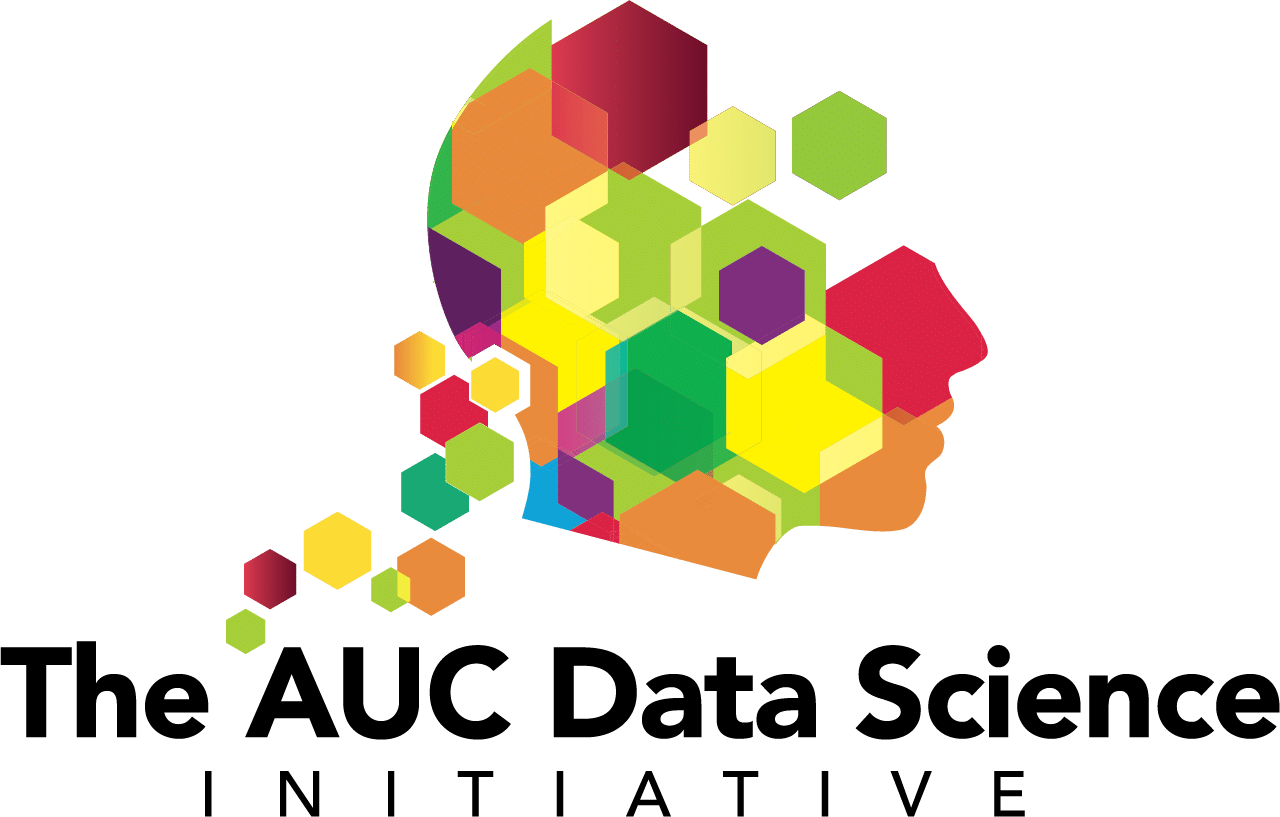2024 SUMMER WORKSHOPS
EXPAND YOUR KNOWLEDGE THIS SUMMER
The Atlanta University Center (AUC) Data Science Initiative invites HBCU faculty, staff, and graduate students to participate in interactive, virtual data science workshops. Topics are chosen to upskill and expand knowledge in various areas of data science, coding, data manipulation, machine learning, AI, and analytics. We offer a variety of workshops that target those from across disciplines. The diverse schedules aim to provide opportunities to engage in data science. Participants who successfully complete a summer workshop and its deliverables will be invited to participate in upcoming symposiums and other events.
Eligibility Information
Applicants must be faculty, staff, or graduate students at an HBCU, have a working laptop/computer, and access to the internet.
Deliverables
Accepted participants agree to:
- Attend all days and sessions.
- Be ready to engage, focus on the task at hand, and not participate in other activities during the workshop.
- Complete a 2-page report on how the information learned can be used in an upcoming course or research project and is due upon completion of the workshop.
- Participate in pre- and post-surveys
Workshop Descriptions
Workshop on R for Reproducible Scientific Analysis (July 11-12, Thursday, 9:00 am-1:00 pm ET & Friday, 9:00 am-1:00 pm ET)
This Carpentries workshop on Geospatial Data Science with R gets learners to a fairly advanced stage of creating geospatial plots (i.e., maps of data distributions) but does not cover data organization or cleaning. It starts out with a short introduction to essential geospatial concepts and a shortened version of our core R lesson before progressing into working with specialized geospatial packages in R.
Application Deadline: Tuesday, July 2, 2024
Location: Virtual via Zoom
Instructor: Dr. Oyebade Oyerinde, Graduate Education Interim Dean and Associate Professor of Public Administration, Clark Atlanta University
Stipend: Participants will receive $200 after completing the workshop and the post-workshop survey and reflection report.
Application: https://www.surveymonkey.com/r/Reproducible2024
Workshop on Geospatial Data Science with R (July 24-25, Thursday, 9:00 am-1:00 pm ET & Friday, 9:00 am-1:00 pm ET)
This workshop provides an overview of the statistical methods used by data scientists, with an emphasis on their applicability to business problems. As such, software is not emphasized and mathematical details are kept to a minimum. The workshop starts with how to identify the need for feature engineering – such as sampling, variable transformations, imputation, and variable selection. We then describe applications of supervised models such as decision trees, neural networks, support vector machines, factorization machines, and logistic regression. We continue the discussion by examining the usefulness of unsupervised models, such as clustering, text mining, network analysis, and path analysis, and finish by exploring model assessment and deployment, such as visualization and monitoring.
Application Deadline: Tuesday, July 2, 2024
Location: Virtual via Zoom
Instructor: Lyrric Jackson, Lecturer in the Department of Dance Performance and Choreography at Spelman College and Certified Carpentries Instructor
Stipend: Participants will receive $200 after completing the workshop and the post-workshop survey and reflection report.
Application: https://www.surveymonkey.com/r/GeoR2024
“Data analytics has become the vital skill for business students in today’s environment. Recruiters emphasize it constantly and we are hearing from our alumni and interns returning from the summer that they need to strengthen these skills. It does not matter which area of business you plan to enter; you need to know how to understand and analyze data.”
— Dr. Keith Hollingsworth, Department of Business Administration, Morehouse College
